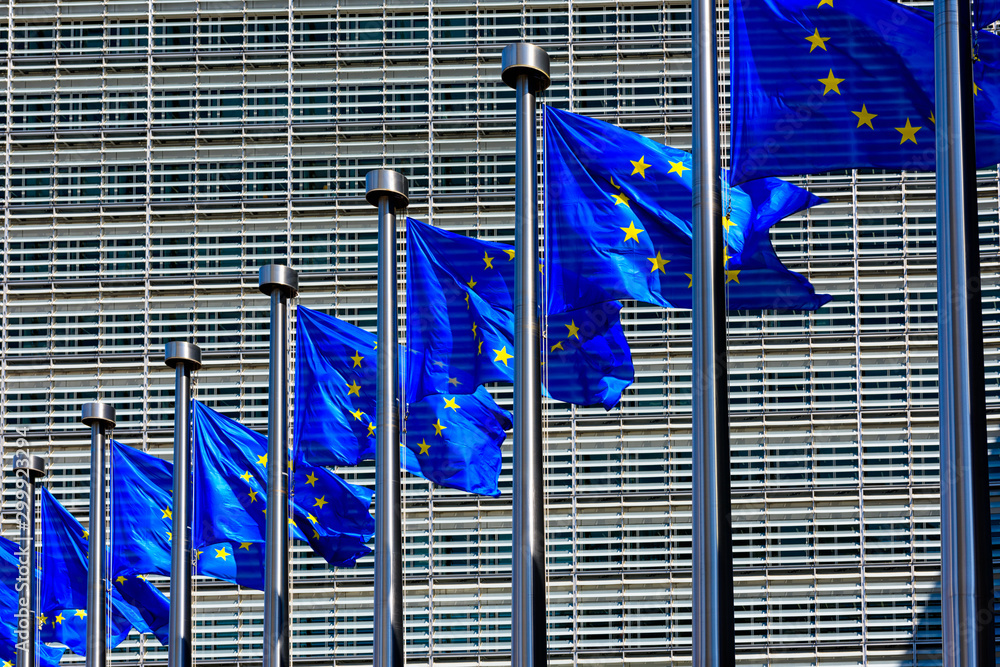TGEU Concerned Over EU Member States Move On Stalled Migration Pact

As European interior ministers met to try and find a consensus on the migration pact, TGEU is concerned about the rollback of rights for asylum seekers under the proposed screening regulation as it would mean deteriorations for trans and gender non-conforming asylum seekers.
Interior ministers from EU Member States met in Luxembourg at the beginning of the month to give a final push to the pact which has been a top priority for the French presidency of the Council. It was announced after the meeting that there was consensus by a large majority of Member States regarding two of the regulations in the pact. The screening regulation which is expected to strengthen the protection of EU borders, and the Eurodac regulation which will put in place a solidarity mechanism to help Member States dealing with high numbers of arrivals. Some Member States also agreed to sign on to a trial voluntary solidarity mechanism that will be evaluated by the Commission in six months. However, measures to address concerns raised by civil society regarding some of the human rights shortfalls in the pact were not addressed.
After years of dealing with asylum and migration from a crisis perspective, the Commission presented its long awaited New Pact on Migration and Asylum in September 2020. As civil society, TGEU hoped that this would be an opportunity for the EU and its Member States to change direction and to enhance human rights-compliance in its asylum and migration policy. These hopes were quickly dashed when the pact was published. The proposals in the pact risk entrenching rather than reversing the worst aspects of existing asylum policies.
Fictional ‘pre-entry’ and detention
For example, the arbitrary deprivation of liberty and the connected violations that might result from the proposed screening, and asylum and return border procedures. As proposed in the pact, individuals will be obliged to “remain in the designated facilities” during screening, and in the return border procedure. Even though it is not clearly provided in both proposals, applicants will be de facto detained, or at least confined on a circumscribed territory, e.g. an island. In any case, their retention will constitute an arbitrary deprivation of the liberty of movement violating article 9 of the Universal Declaration of Human Rights, “No one shall be subjected to arbitrary arrest, detention or exile”. Also, both the screening and asylum border procedure will be carried out in a ‘pre-entry’ phase. Member States will pretend that applicants have not entered national territory, while in reality they did enter. In this situation, basic procedural guarantees, such as a judicial review of their detention, would not be granted. Moreover, applicants would lack access to proper legal information and legal assistance, due to the de facto detention condition and the very short deadlines of the procedure. Detaining trans and gender-diverse asylum seekers in gender segregated or mass detention facilities will increase their risk of physical violence and harassment due to their gender identity.
Problematic implementation
The implementation of the proposed screening procedure is further problematic. The regulation provides that, during the screening which is supposed to be concluded in 5 days, particular attention should be paid to “individuals with vulnerabilities, such as pregnant women, elderly persons, single-parent families, persons with an immediately identifiable physical or mental disability, persons visibly having suffered psychological or physical trauma and unaccompanied minors”. The assessment of such vulnerabilities is critical because they constitute the criteria for the application of the normal asylum procedure and for immediate psychological care. However, besides the fact that victims of torture, people with a diverse SOGIESC background are not even mentioned, the indication of “immediately identifiable” and “visible” signs is very problematic, since many vulnerabilities – e.g. in the case of victims of gender-based violence or trafficking, or of persons suffering from serious psychological distress – need far more than five days to be identified.Trans and gender-diverse asylum seekers risk falling through the cracks if this is implemented, because if they fail to disclose their gender identity, which is something they have hidden most of their lives when they arrive, they will not be seen as vulnerable or treated as such. If this happens, they risk being sent back to their country of origin which might put their lives at risk.
Trans and gender-diverse asylum seekers tend to be one of the vulnerable groups of people that come to the EU seeking protection. They are vulnerable because they often arrive in Europe after making precarious journeys. Some of them are fleeing countries where their very identity can have them persecuted, sent to prison, or face different forms of discrimination. It is the obligation of the EU to make sure that all asylum seekers, particularly those with intersecting vulnerabilities, are protected and not persecuted by any asylum and migration legislation that is passed. TGEU calls upon Member States to meet their obligation to asylum seekers under international law. The proposed fictional ‘pre-entry’ phase in which the screening and the border procedures are carried out constitutes a dangerous proposal depriving applicants for international protection of their fundamental rights and preventing them from enjoying basic procedural safeguards. Applicants subject to border procedures should be recognised as having entered the EU territory.